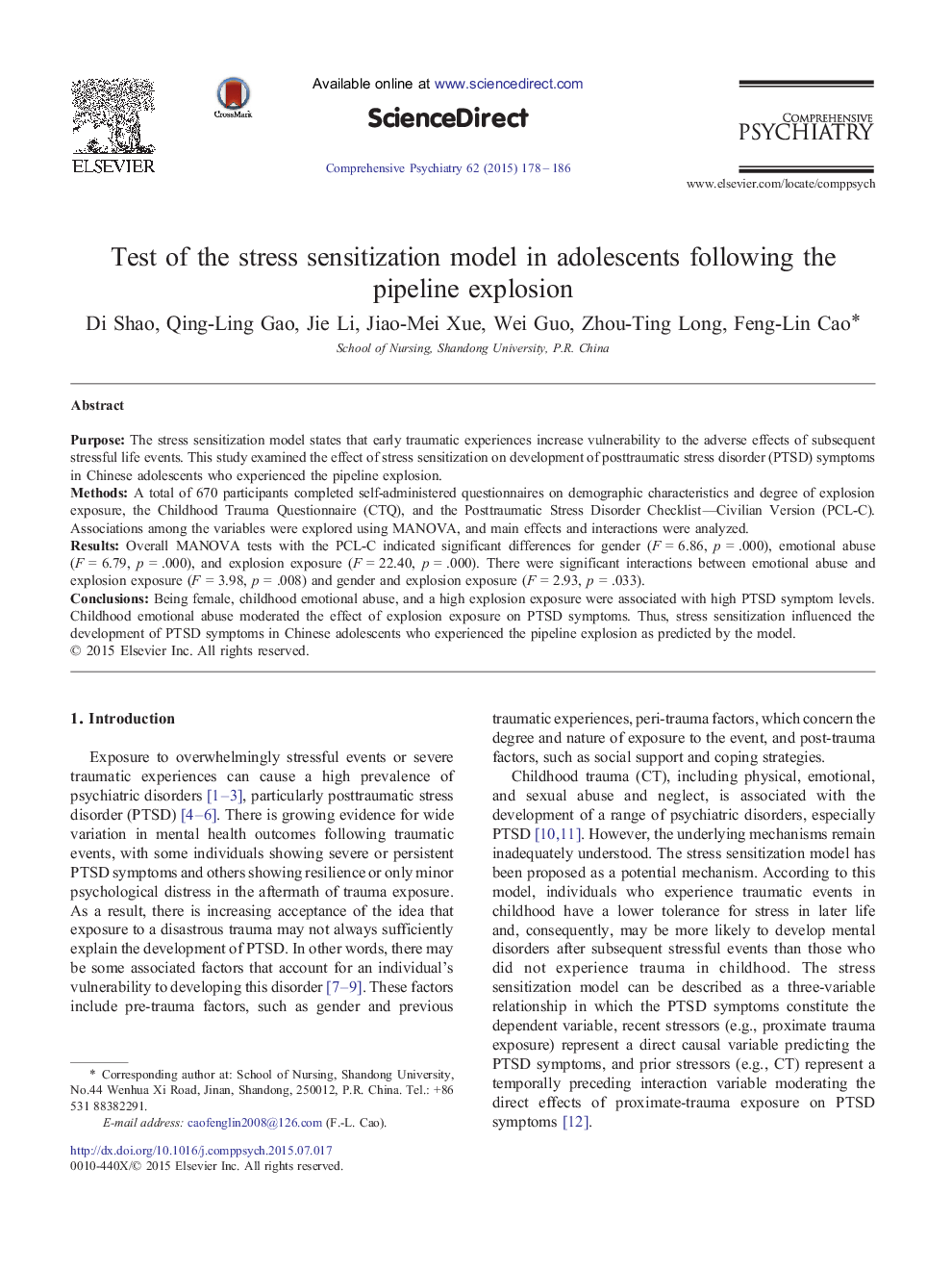| Article ID | Journal | Published Year | Pages | File Type |
|---|---|---|---|---|
| 317982 | Comprehensive Psychiatry | 2015 | 9 Pages |
PurposeThe stress sensitization model states that early traumatic experiences increase vulnerability to the adverse effects of subsequent stressful life events. This study examined the effect of stress sensitization on development of posttraumatic stress disorder (PTSD) symptoms in Chinese adolescents who experienced the pipeline explosion.MethodsA total of 670 participants completed self-administered questionnaires on demographic characteristics and degree of explosion exposure, the Childhood Trauma Questionnaire (CTQ), and the Posttraumatic Stress Disorder Checklist—Civilian Version (PCL-C). Associations among the variables were explored using MANOVA, and main effects and interactions were analyzed.ResultsOverall MANOVA tests with the PCL-C indicated significant differences for gender (F = 6.86, p = .000), emotional abuse (F = 6.79, p = .000), and explosion exposure (F = 22.40, p = .000). There were significant interactions between emotional abuse and explosion exposure (F = 3.98, p = .008) and gender and explosion exposure (F = 2.93, p = .033).ConclusionsBeing female, childhood emotional abuse, and a high explosion exposure were associated with high PTSD symptom levels. Childhood emotional abuse moderated the effect of explosion exposure on PTSD symptoms. Thus, stress sensitization influenced the development of PTSD symptoms in Chinese adolescents who experienced the pipeline explosion as predicted by the model.
